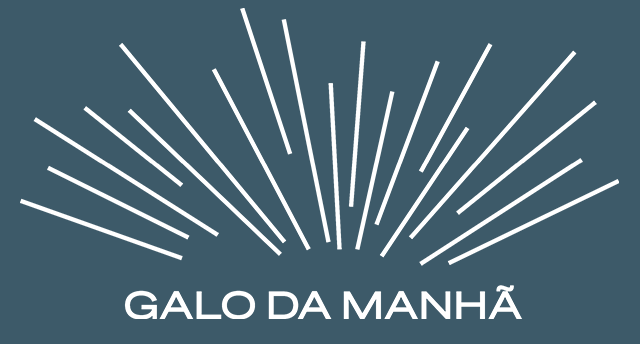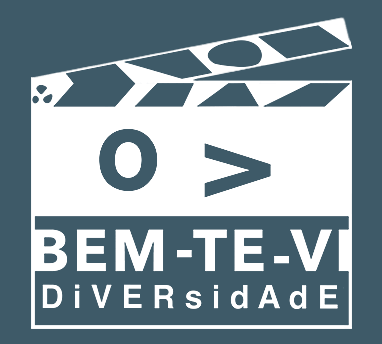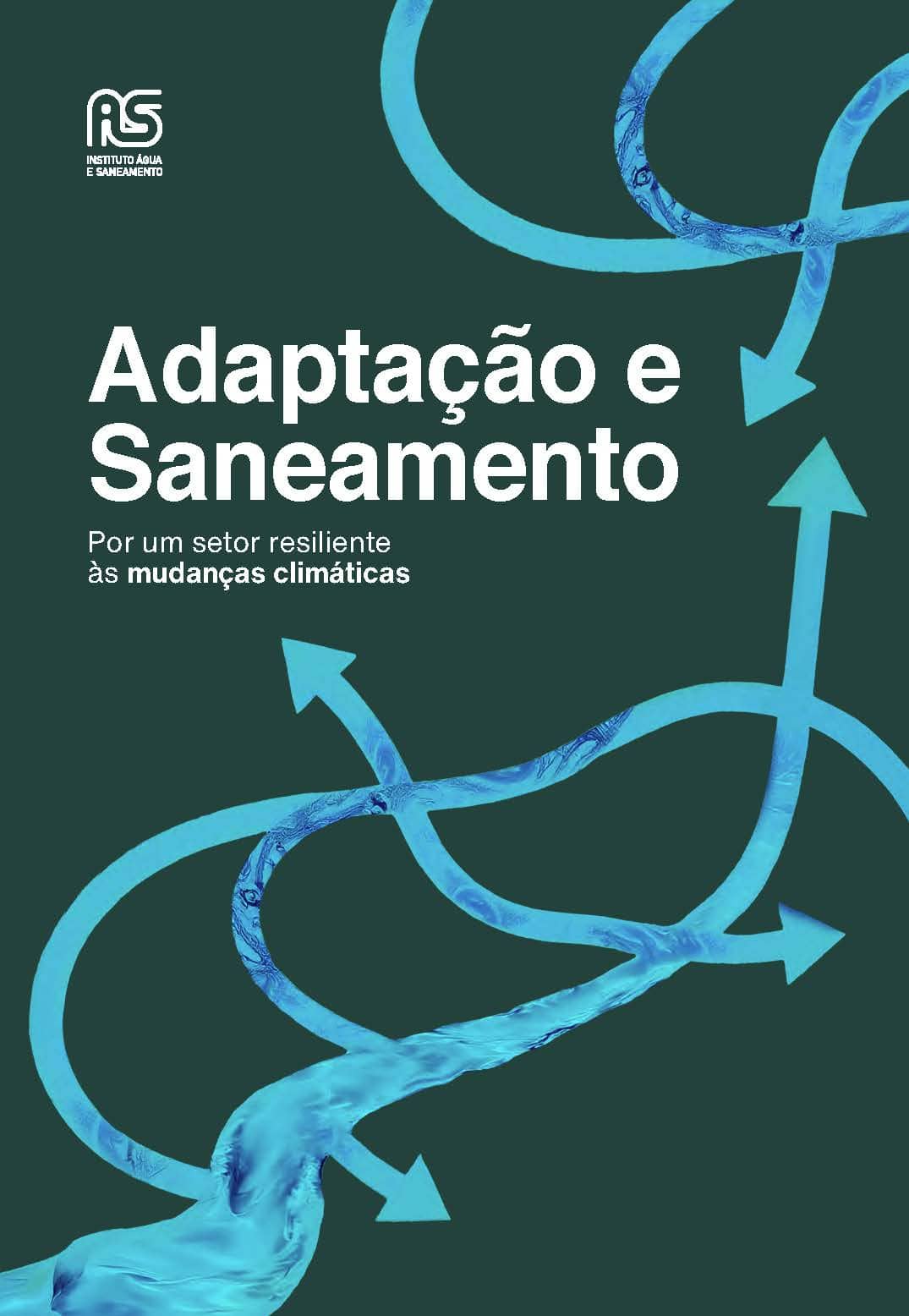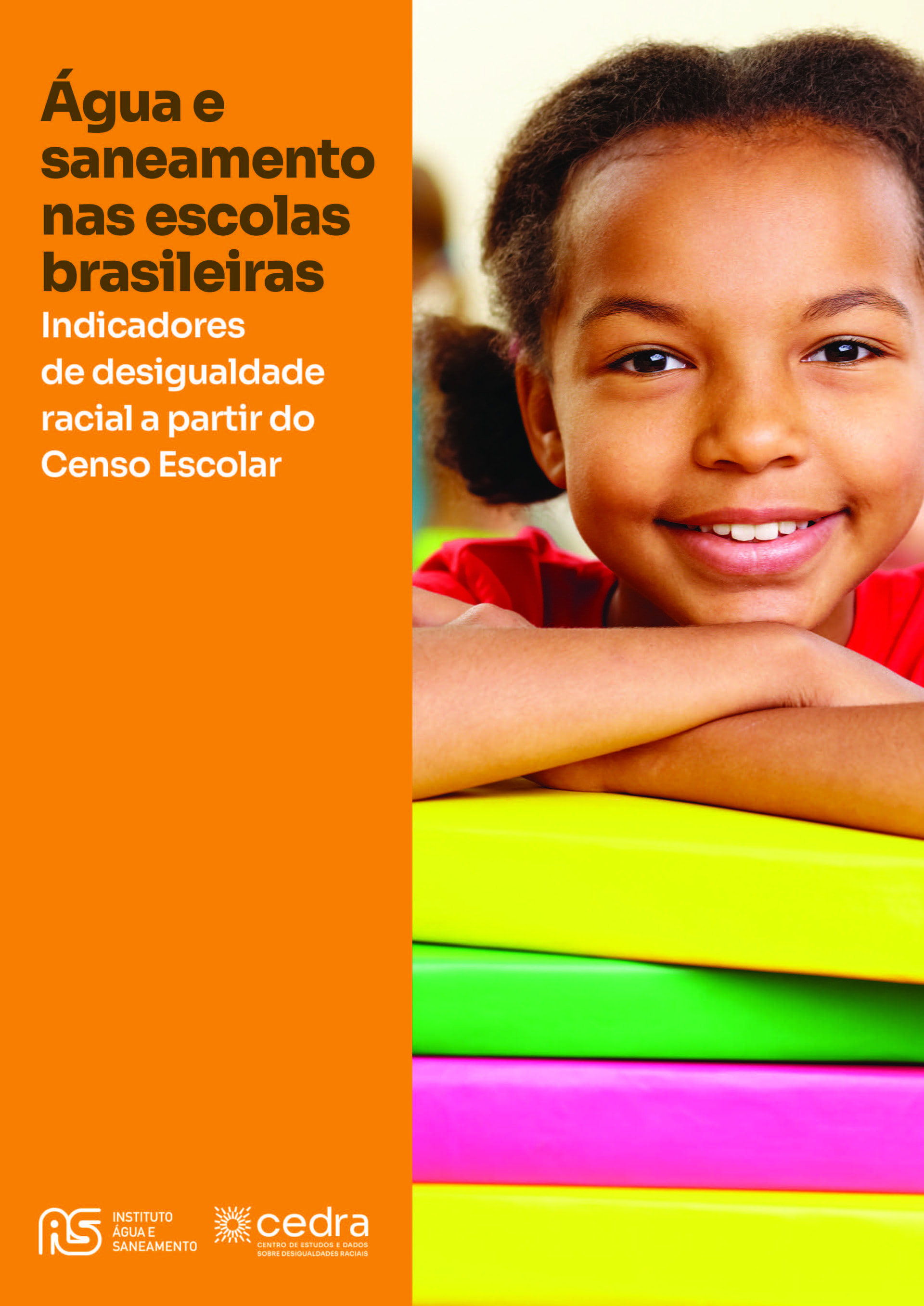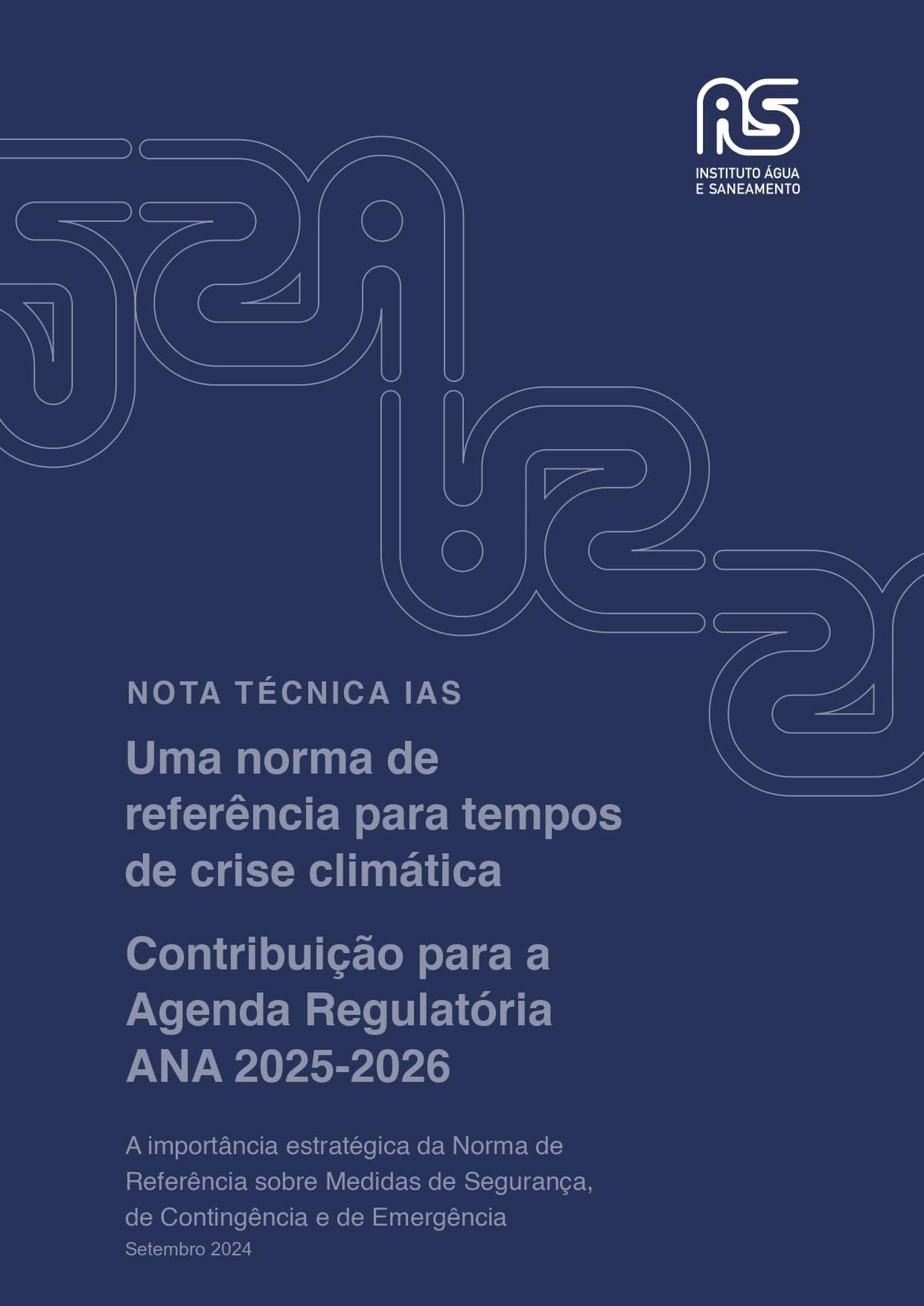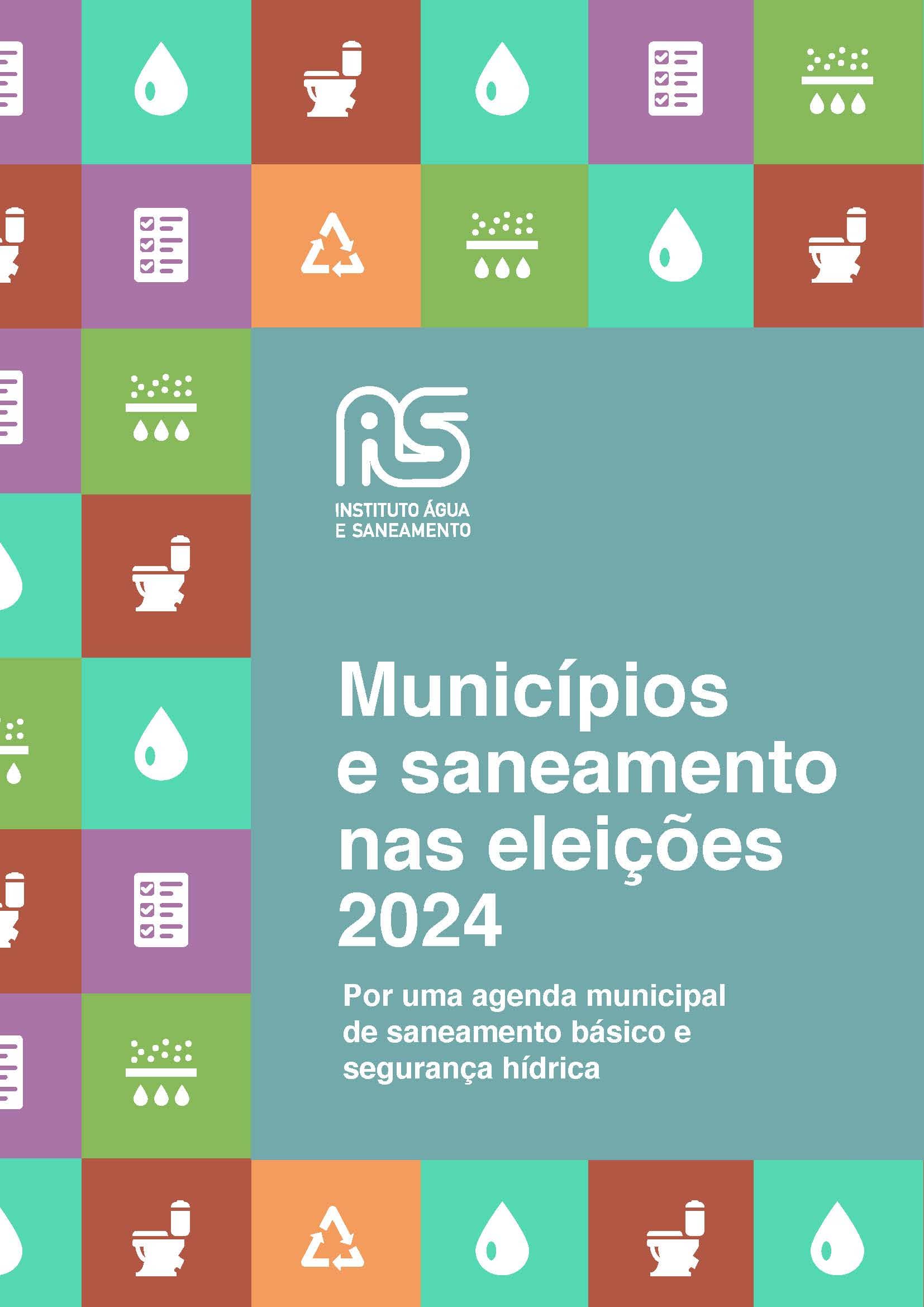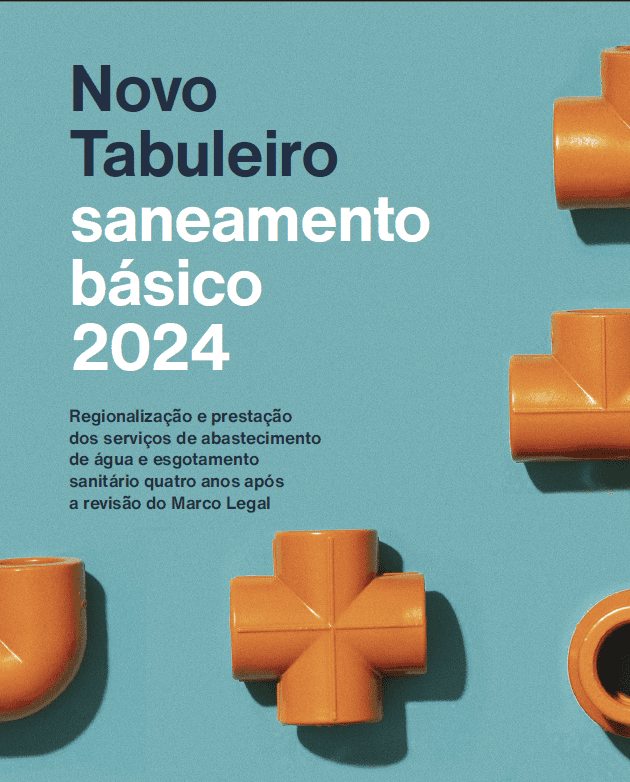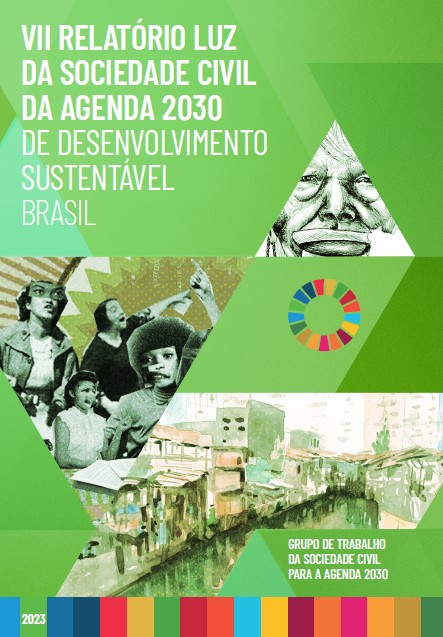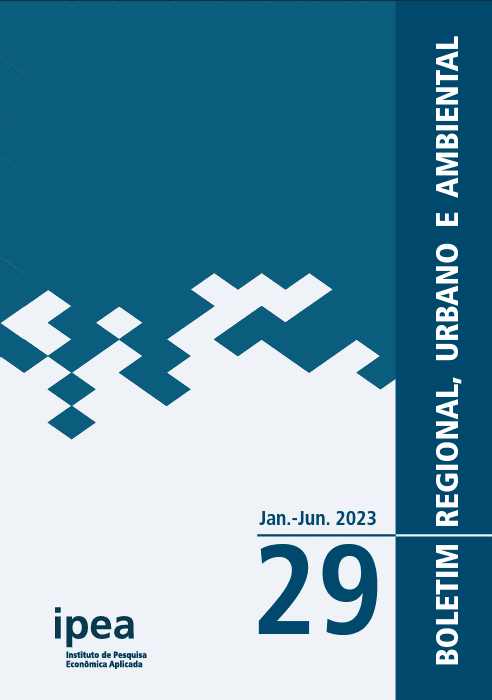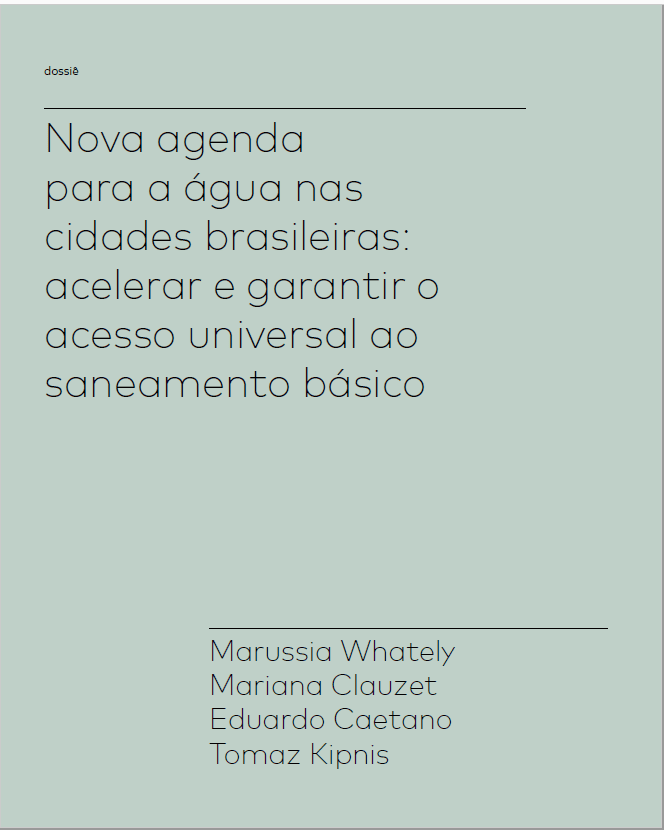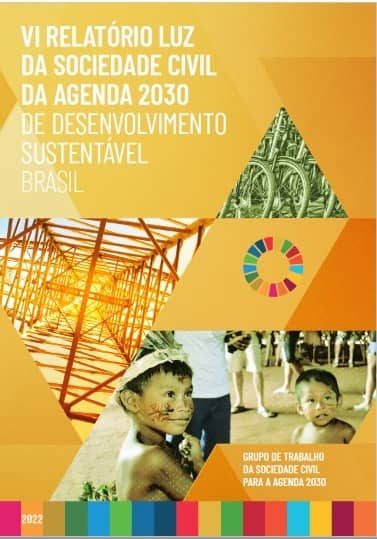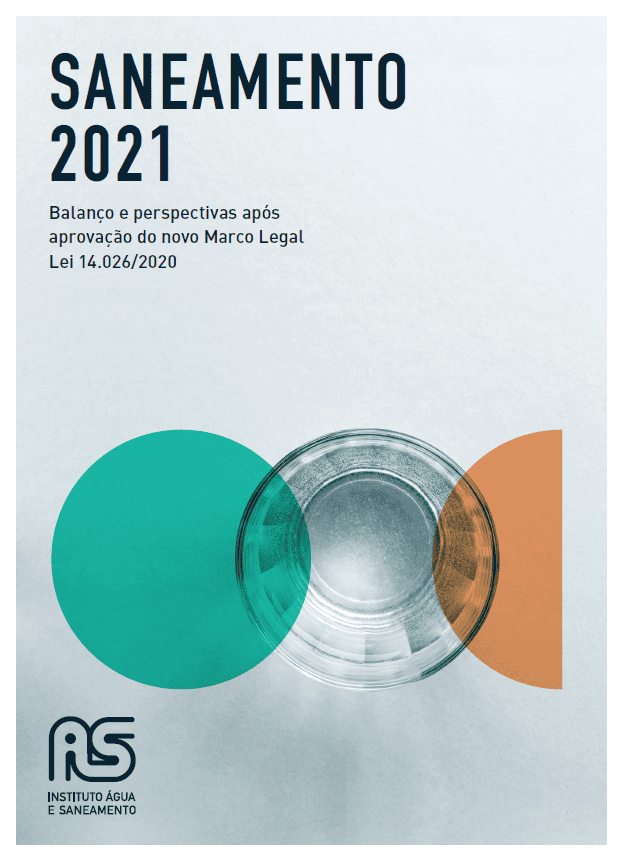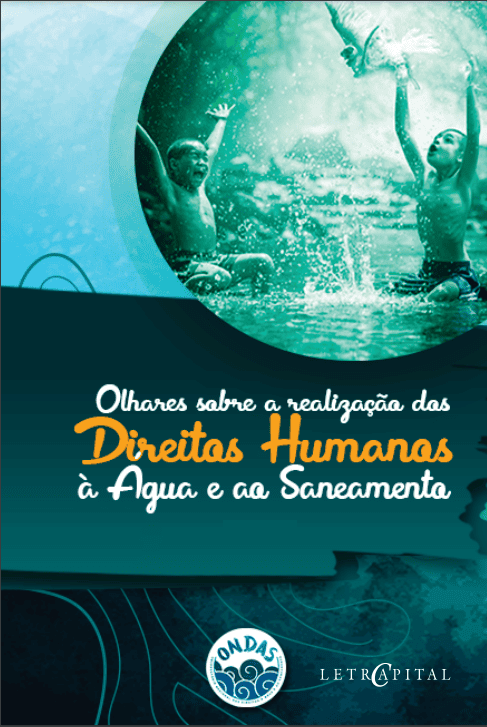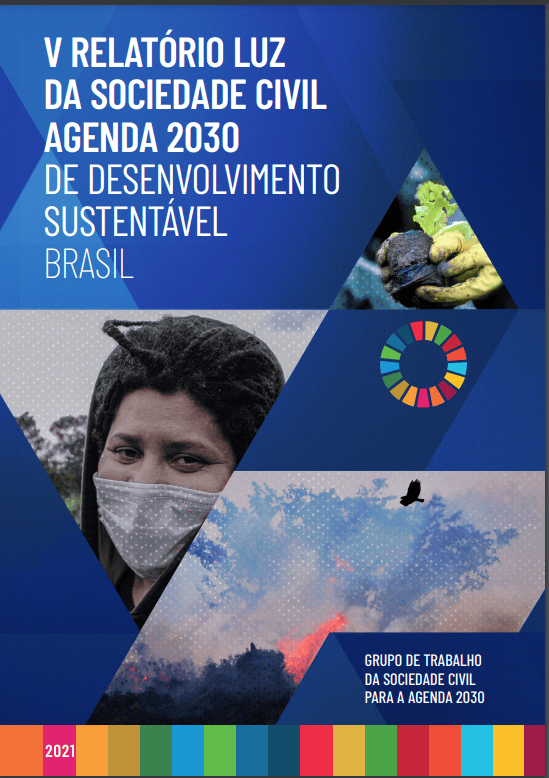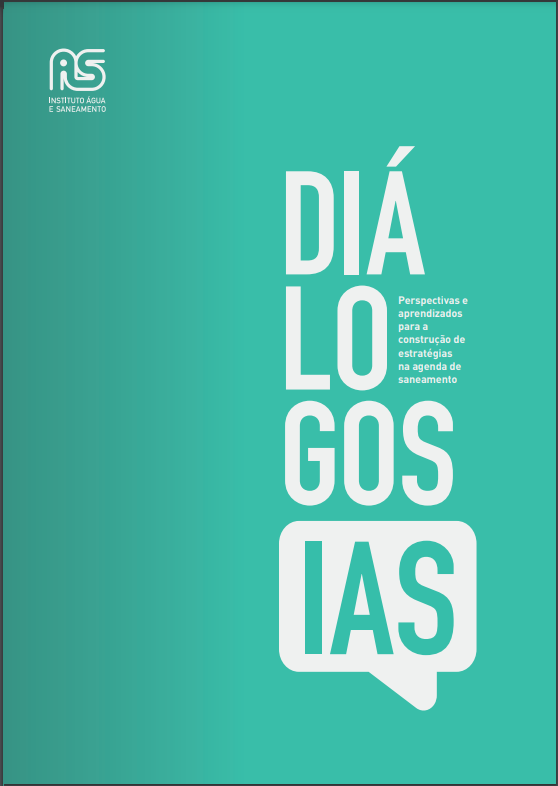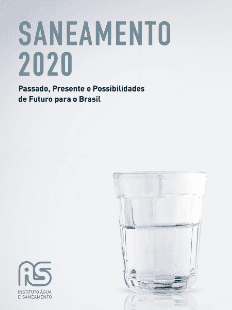Publications
Here you have access to a collection of articles and publications by the IAS
- ALL
- Collaboration
- Publications
Adaptação e Saneamento – Por um setor resiliente às mudanças climáticas
A publicação tem como objetivo alertar para a vulnerabilidade da área frente à crise climática, mostrar o que significa adaptação e defender a criação de um setor de saneamento básico resiliente aos desafios atuais. O material apresenta medidas chave de adaptação para o saneamento, desde as bases jurídicas e institucionais necessárias até ações prioritárias para casos de secas, enchentes, alagamentos e eventos extremos.O documento também pretende mostrar como um setor de saneamento básico preparado pode colaborar também para a redução de riscos e a mitigação da crise climática.
Água e saneamento nas escolas brasileiras: indicadores de desigualdade racial a partir do Censo Escolar
O estudo analisa o acesso à rede pública de abastecimento de água, de coleta de esgoto, coleta e destinação final de lixo pelo poder público, bem como acesso à água potável e banheiro nas escolas da Educação Básica, que engloba Educação Infantil, Ensino Fundamental, Ensino Médio e Educação para Jovens e Adultos. Os dados comprovam a desigualdade entre as condições vivenciadas por estudantes de diferentes cores ou raças, que compõem o panorama das desigualdades raciais na educação.
Uma norma de referência para tempos de crise climática
Cada vez mais frequentes e intensos, os eventos climáticos extremos têm evidenciado a fragilidade e o risco aos serviços de saneamento básico. Neste contexto, é urgente que a ANA (Agência Nacional de Águas e Saneamento Básico) crie uma Norma de Referência sobre Medidas de Segurança, Contingência e Emergência. Nesta nota técnica, o IAS traz argumentos sobre a importância e relevância da norma.
Municípios e saneamento nas eleições 2024
Água e saneamento são historicamente importantes para as cidades e ligadas a questões de planejamento urbano, meio ambiente e saúde pública. Mas na era das mudanças climáticas há uma nova urgência, como ficou tragicamente comprovado nas inundações que atingiram dezenas de municípios gaúchos e na seca que atualmente assola partes da Amazônia.
Novo Tabuleiro do Saneamento Básico 2024” (New 2024 Sanitation Chart)
The New 2024 Sanitation Chart organizes information on movements within the states and presents an up-to-date overview of the new management and service provision arrangements in Brazil four years after the review of the sector's Legal Framework was approved. It includes updated data on regionalization, processes to include the private sector and a description of the profile of providers.
7th Civil Society Spotlight Report
The Civil Society Spotlight Report on the 2030 Agenda is produced annually by the Civil Society Working Group for the 2030 Agenda (GT Agenda 2030), a coalition formed by 41 civil society organizations, including IAS. The document presents advances and setbacks in each of the 169 goals of the 17 Sustainable Development Goals (SDGs) of the 2030 Agenda, established by the UN in 2015.
An assessment of sanitation regionalizations after the review of the Sanitation Legal Framework (Law nº 14,026/2020)
The Water and Sanitation Institute (IAS) has made an assessment of the models adopted by each federative unit in Brazil to promote the regionalization of services proposed in the Sanitation Legal Framework, Law No. 14,026/2020. The article is part of issue no. 29 of the Regional, Urban and Environmental Bulletin (BRUA), from the Institute of Applied Economic Research (IPEA), which is focused on sanitation. This study has been carried out by the IAS Public Policy analyst, Paula Pollini, the Networks and Partnerships coordinator, Mariana Clauzet, and the executive coordinator, Eduardo Caetano.
New agenda for water in Brazilian cities: accelerate and guarantee universal access to sanitation
The article ‘New agenda for water in Brazilian cities: accelerate and guarantee universal access to sanitation’, written by the executive director of the Water and Sanitation Institute (IAS), Marussia Whately, together with the executive coordinator, Eduardo Caetano, the coordinator of Networks and Partnerships, Mariana Clauzet, and the founder of the Inclusive Sanitation Organization, Tomaz Kipnis, discusses the urgency of reviewing water management policies, especially supply and sanitation. Published in América, Escola da Cidade's postgraduate journal, the text is part of the dossier ‘Challenges and possibilities of water in the construction of territories.’
6th Civil Society Spotlight Report
The Civil Society Spotlight Report on the 2030 Agenda is produced annually by the Civil Society Working Group for the 2030 Agenda (GT Agenda 2030), a coalition formed by 57 organizations and forums across Brazil, and it presents the progress and setbacks towards each of the 169 targets of the 17 Sustainable Development Goals (SDGs) of the 2030 Agenda, established by the UN in 2015.
Water and Sanitation in 2021
The publication “Water and Sanitation in 2021 - Overview and prospects after the passing of the new Sanitation Legal Framework 14,026/2020”, analyzing what happened to Brazil’s sanitation policy a little more than one year after the approval of this legal framework, in July 2020.
Perspectives on the Human Rights to Water and Sanitation
This publication is the result of the course on the Human Rights to Water and Sanitation, organized by the National Observatory for the Human Rights to Water and Sanitation (ONDAS).
5th Civil Society Spotlight Report
The Civil Society Spotlight Report on the 2030 Agenda is produced annually by the Civil Society Working Group for the 2030 Agenda (GT Agenda 2030), a coalition formed by 57 organizations and forums across Brazil, and it presents the progress and setbacks towards each of the 169 targets of the 17 Sustainable Development Goals (SDGs) of the 2030 Agenda, established by the UN in 2015.
IAS (Water and Sanitation Institute) Dialogues
The publication “IAS Dialogues – Perspectives and lessons learned from building strategies on the water and sanitation agenda” is the result of a cycle of virtual conversations to deepen understanding of the situation, interfaces and possibilities for action and organization of the water and sanitation industry in Brazil.
Water and Sanitation in 2020
The publication "Water and sanitation in 2020: past, present and future prospects for Brazil" is the result of a technical effort to collect and review data concerning the past, present and future of water and sanitation in Brazil.

